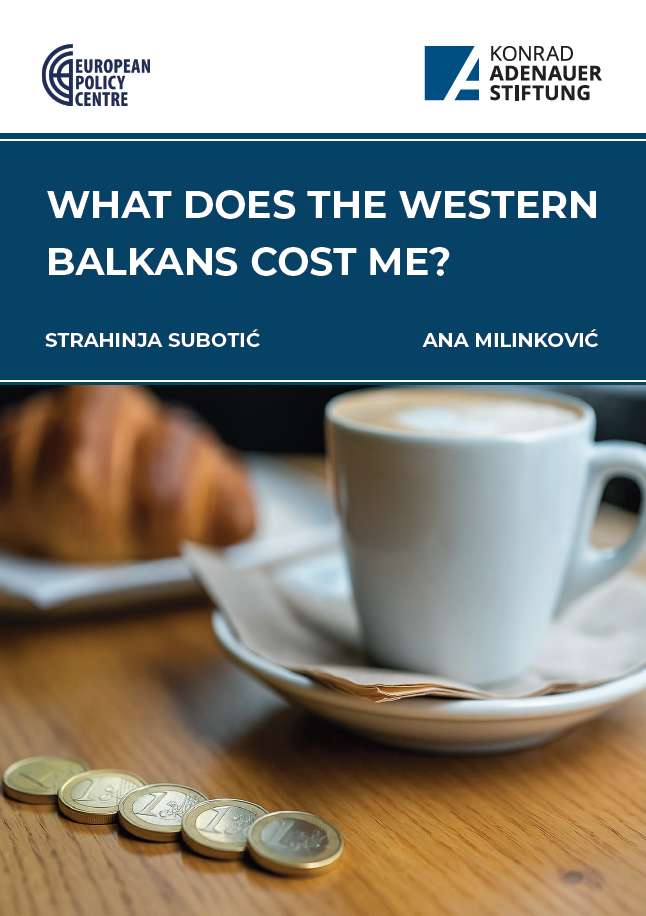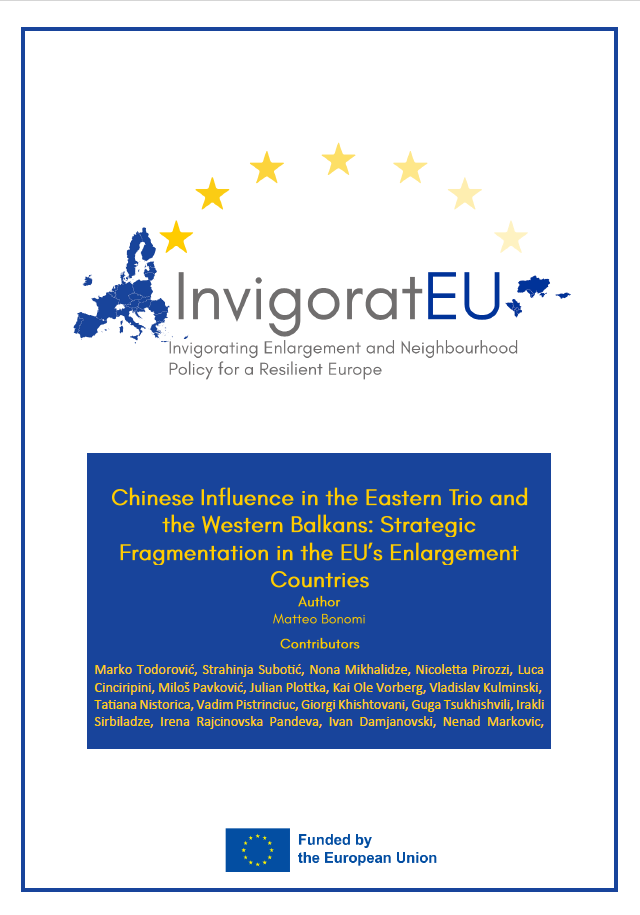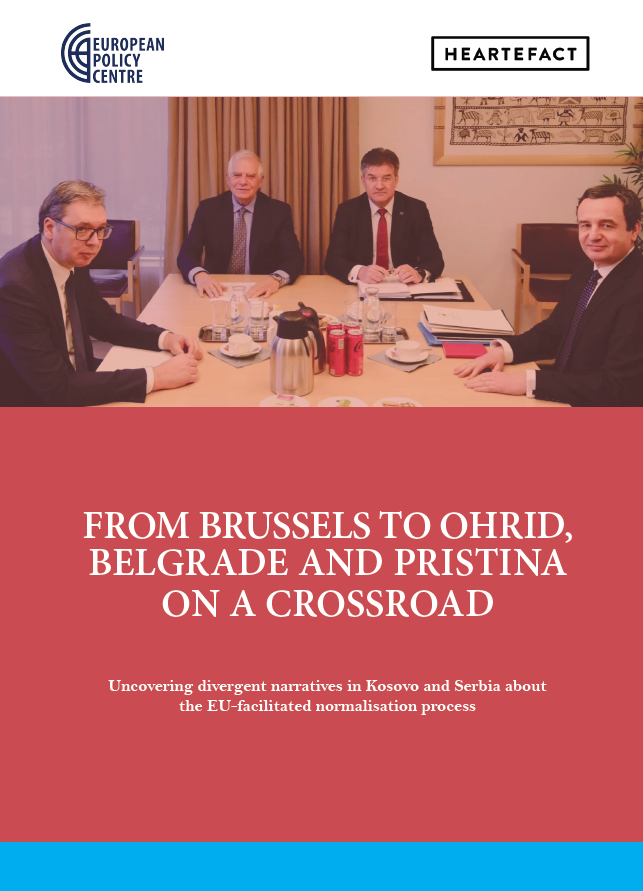Headquarters: Svetog Nauma 7, 11000
Office address: Đorđa Vajferta 13, 11000
Phone:: +381 11 4529 323
Beyond the Kremlin’s Grasp? The Decline and Persistence of Russian Inluence in EU
Candidate Countries
This study analyses Russia’s inluence in the Eastern Trio (Georgia, Moldova, and Ukraine)
and the Western Balkans (Albania, Bosnia and Herzegovina, Kosovo, Montenegro, North
Macedonia, and Serbia) over the past decade, focusing on its political, economic, and societal dimensions. Using the InvigoratEU External Inluence Index, a comprehensive empirical tool specifically designed for this study, it systematically measures and compares Russian leverage across nine EU candidate countries. The index captures shifts in inluence from 2013 to 2023, highlighting how political-security dynamics, economic dependencies, and societal developments have shaped Moscow’s leverage in the region and the strategic responses of affected states. The indings reveal a general decline in Russian inluence, particularly in the political and economic spheres, while societal inluence remains more resilient. Political leverage has weakened as countries distance themselves from Moscow, though informal networks and disinformation campaigns persist. Economic inluence has been reduced through energy diversi ication and trade realignment, limiting Russia’s capacity for coercion. How ever, societal inluence remains a key vector, with Russian media, religious networks, and ideological narratives continuing to shape public opinion and foster Euroscepticism. These trends highlight the need for a proactive EU response that reinforces the credibility of enlargement, strengthens energy independence, and counters Russian disinformation. Further gradual integration of candidate countries into the EU could maintain reform momentum and systematically diminish Moscow’s leverage, while targeted investments in energy infrastructure and diversi ied supply routes would enhance regional resilience and limit Russia’s capacity for economic coercion. Additionally, enhanced support for independent media, fact-checking initiatives, and strategic communication in local languages is essential to mitigating Russian inluence. The study underscores that while Russia’s ability to exert direct control is diminishing, its capacity to shape societal narratives remains a challenge, requiring a forward-looking EU strategy that integrates political, economic, and societal dimensions to reinforce resilience and strategic influence in the region.
This study was previously published on InvigoratEU.
Download the PDF study here.


